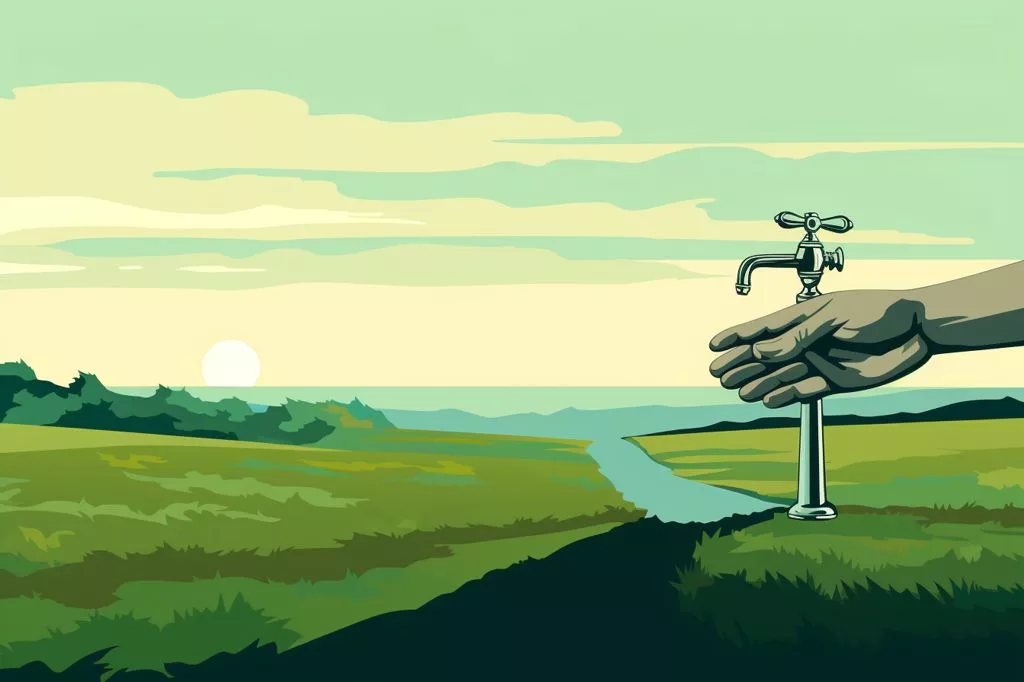World Food Day is celebrated on October 16th to raise awareness about global food insecurity and poverty. This year’s theme is “Water is life and water is food. Leave no one behind,” highlighting the crucial connection between water resources and food security. South Africa’s robust agricultural sector exports half of its produce while ensuring adequate domestic supply, but household food insecurity remains a problem. Joint efforts are required to tackle food insecurity, achieve the 2030 Sustainable Development Goals, and establish a more equitable and food-secure world for everyone.
What is World Food Day and why is it important?
World Food Day is an annual event celebrated on October 16th to raise awareness about global food insecurity and poverty. This year’s theme is “Water is life and water is food. Leave no one behind,” highlighting the crucial connection between water resources and food security. The event serves as a reminder of the urgent need for global collaboration to tackle the persistent challenge of malnutrition and food insecurity.
Celebrating World Food Day and Addressing Food Insecurity
On October 16th, countries across the world will unite to celebrate World Food Day (WFD), an event designed to raise awareness about the ongoing issue of global food insecurity and the struggle against poverty. The annual event underscores the persistent challenge of malnutrition and the increasing risks posed by climate change, inflation, geopolitical strife, and energy shortages.
This year’s World Food Day theme is “Water is life and water is food. Leave no one behind,” highlighting the critical connection between water resources and food security. In recognition of this relationship, the South African government supports small-scale farmers in all provinces through its Presidential Employment Stimulus (PES) program. The initiative supplies agricultural inputs, including water tanks, to guarantee access to this essential resource for food production.
On October 26, 2023, South Africa’s World Food Day event will be held in King Cetshwayo District, Umhlathuze Local Municipality, KwaZulu-Natal. This gathering offers a chance to scrutinize the nation’s food security situation, applaud its dynamic agricultural sector, and acknowledge the challenges many households face.
South Africa’s Agricultural Sector and Persistent Food Insecurity
South Africa features a robust agricultural sector, agro-processing industry, and supply chain that significantly contribute to exports, job creation, and national food security. With a growing agricultural output, the country currently exports around half of its produce in value terms while ensuring adequate domestic supply. However, household food insecurity remains a problem, intensified by the Covid-19 pandemic.
To tackle these challenges, the Department of Agriculture, Land Reform, and Rural Development collaborates with partners in the food supply chain. Their objective is to enhance small-scale and medium-scale agricultural production, thereby improving household food security and continually supporting the commercial sector. Several tools have been developed to address food security concerns and generate jobs, such as the Agriculture and Agro-processing Master Plans, Blended Finance Instrument, and various farmer support schemes like CASP and the revitalization of tribal lands.
Despite the success of South Africa’s agricultural sector, lingering food insecurity issues demand increased job creation and household food security initiatives. The Department is grateful for the assistance it receives from sponsors during the annual celebration, with food supplies symbolizing solidarity with vulnerable communities.
The Importance of Water and Global Collaboration
World Food Day serves as a reminder that joint efforts are required to tackle food insecurity and achieve the 2030 Sustainable Development Goals. The significance of water as both life and food must be acknowledged and prioritized to ensure that no one is left behind in the pursuit of a well-nourished and secure global population.
In the face of global challenges, such as climate change and energy crises, nations worldwide must collaborate to address the urgent issue of food insecurity. The South African government’s emphasis on water resources in agricultural support programs highlights the necessity for innovative solutions and cooperation. Through joint efforts, it is possible to establish a more equitable and food-secure world for everyone.
As this year’s World Food Day theme underscores the vital importance of water in food production, the international community must acknowledge the significance of access to clean water. By prioritizing water and food security, nations can help guarantee a brighter future for generations to come. As the world unites to celebrate World Food Day, let this serve as a reminder of the collective action needed to confront global food insecurity and the pressing need for sustainable solutions that place water as a foundation of life and food.
1. What is World Food Day and why is it important?
World Food Day is an annual event celebrated on October 16th to raise awareness about global food insecurity and poverty. This year’s theme is “Water is life and water is food. Leave no one behind,” highlighting the crucial connection between water resources and food security. The event serves as a reminder of the urgent need for global collaboration to tackle the persistent challenge of malnutrition and food insecurity.
2. What is the theme of this year’s World Food Day?
This year’s World Food Day theme is “Water is life and water is food. Leave no one behind,” highlighting the critical connection between water resources and food security.
3. How does South Africa’s agricultural sector contribute to food security?
South Africa features a robust agricultural sector, agro-processing industry, and supply chain that significantly contribute to exports, job creation, and national food security. With a growing agricultural output, the country currently exports around half of its produce in value terms while ensuring adequate domestic supply.
4. What is the South African government’s Presidential Employment Stimulus program?
The South African government’s Presidential Employment Stimulus (PES) program supports small-scale farmers in all provinces by supplying agricultural inputs, including water tanks, to guarantee access to essential resources for food production.
5. Why does South Africa still face household food insecurity despite its robust agricultural sector?
Household food insecurity remains a problem in South Africa, intensified by the Covid-19 pandemic. To address this, the Department of Agriculture, Land Reform, and Rural Development collaborates with partners in the food supply chain to enhance small-scale and medium-scale agricultural production, improve household food security, and continually support the commercial sector.
6. What tools have been developed to address food security concerns in South Africa?
Several tools have been developed to address food security concerns and generate jobs in South Africa, such as the Agriculture and Agro-processing Master Plans, Blended Finance Instrument, and various farmer support schemes like CASP and the revitalization of tribal lands.
7. Why is global collaboration crucial to addressing food insecurity?
World Food Day serves as a reminder that joint efforts are required to tackle food insecurity and achieve the 2030 Sustainable Development Goals. The significance of water as both life and food must be acknowledged and prioritized to ensure that no one is left behind in the pursuit of a well-nourished and secure global population.
8. What is the significance of water in food production?
Water is a vital resource in food production, and its significance cannot be understated. This year’s World Food Day theme underscores the importance of water in food production. The international community must acknowledge the significance of access to clean water to prioritize water and food security to guarantee a brighter future for generations to come.








